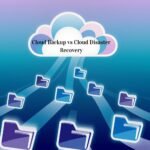Table of Contents
Introduction
In today’s digital age, cloud computing has become the backbone of countless businesses, enabling unparalleled flexibility, scalability, and cost savings. As technology evolves, so do the cloud computing solutions that drive innovation and efficiency. This article explores five revolutionary cloud computing solutions that you absolutely must try, providing an in-depth look at what makes each unique and beneficial.
What is Cloud Computing?
Definition and Basics
Cloud computing involves providing computing services over the Internet, encompassing servers, storage, databases, networking, software, analytics, and intelligence. This method, known as “the cloud,” enables quicker innovation, adaptable resource allocation, and benefits from economies of scale.
History and Evolution
The concept of cloud computing dates back to the 1960s, but it wasn’t until the mid-2000s that it started to gain significant traction with the launch of services like Amazon Web Services (AWS). Today, cloud computing is a fundamental aspect of the IT infrastructure of many organizations worldwide.
Key Benefits
Cloud computing offers numerous benefits, including:
- Scalability: Easily scale resources up or down based on demand.
- Cost Efficiency: Reduce costs by paying only for the resources used.
- Flexibility and Mobility: Access services and data from anywhere with an internet connection.
- Enhanced Collaboration: Improve collaboration through shared resources and tools.
Why Cloud Computing is Essential Today
Scalability
One of the most significant advantages of cloud computing is its ability to scale resources seamlessly. Whether you’re experiencing a surge in traffic or need additional storage, cloud solutions can adjust to meet your demands without any downtime.
Cost Efficiency
Cloud computing removes the necessity for large initial investments in hardware and software. Instead, you pay for what you use, which can lead to significant cost savings, especially for small and medium-sized businesses.
Flexibility and Mobility
With cloud computing, you can access your data and applications from virtually anywhere. This flexibility is particularly beneficial in today’s remote work environment, allowing teams to collaborate efficiently regardless of their location.
Enhanced Collaboration
Cloud-based tools and services foster better collaboration by enabling real-time communication and resource sharing. Teams can work together more effectively, making it easier to manage projects and tasks.
Revolutionary Cloud Computing Solutions
Solution 1: Amazon Web Services (AWS)
Overview
Amazon Web Services (AWS) is a widely embraced cloud platform that provides more than 200 fully-featured services across global data centers.
Key Features
- Compute Power: AWS offers a range of computing services, including EC2, Lambda, and ECS.
- Storage Options: Services like S3 and Glacier provide scalable storage solutions.
- AI and Machine Learning: AWS offers powerful AI and ML services such as SageMaker.
- Security: Robust security measures and compliance certifications.
Use Cases
Organizations of all sizes for web and application hosting, data processing, storage, and more use AWS. Companies like Netflix and Airbnb leverage AWS to handle their vast computational and storage needs.
Solution 2: Microsoft Azure
Overview
Microsoft Azure is a cloud computing platform and service developed by Microsoft, offering various cloud services such as computing, analytics, storage, and networking.
Key Features
- Hybrid Capabilities: Seamless integration with on-premises environments.
- AI and Analytics: Advanced AI services and data analytics tools.
- Developer Tools: Comprehensive suite of development and DevOps tools.
- Security: Enterprise-grade security with more than 90 compliance certifications.
Use Cases
Azure is ideal for building, testing, deploying, and managing applications and services through Microsoft-managed data centres. Companies like Adobe and GE use Azure for their cloud computing needs.
Solution 3: Google Cloud Platform (GCP)
Overview
Google Cloud Platform (GCP) offers a suite of cloud computing services that runs on the same infrastructure that Google uses internally for its end-user products, such as Google Search and YouTube.
Key Features
- Big Data and Analytics: Powerful tools for big data processing and analytics.
- Machine Learning: Advanced ML services like TensorFlow and AI Platform.
- Scalability: Highly scalable infrastructure for handling vast amounts of data.
- Security: State-of-the-art security with multiple layers of protection.
Use Cases
GCP is widely used for data-intensive applications, big data analytics, and machine learning. Companies like Spotify and Snap Inc. utilize GCP to power their applications.
Solution 4: IBM Cloud
Overview
IBM Cloud provides a robust suite of cloud computing services, from infrastructure as a service (IaaS) to platform as a service (PaaS) and software as a service (SaaS).
Key Features
- AI and Data: Integration with IBM Watson for AI-driven insights.
- Hybrid Cloud: Strong capabilities for hybrid cloud environments.
- Blockchain: Advanced blockchain solutions for secure transactions.
- Security: Comprehensive security and compliance frameworks.
Use Cases
IBM Cloud is used in various industries, including finance, healthcare, and manufacturing, to leverage AI, blockchain, and hybrid cloud capabilities. Companies like Maersk and Volkswagen use IBM Cloud for their digital transformation efforts.
Solution 5: Oracle Cloud
Overview
Oracle Cloud offers a complete suite of integrated applications, platform services, and engineered systems.
Key Features
- Database Services: Industry-leading database management services.
- Enterprise Applications: Comprehensive suite of enterprise applications.
- Security: Advanced security features and compliance standards.
- AI and Analytics: Powerful AI and analytics tools for business insights.
Use Cases
Enterprises use Oracle Cloud to manage databases, run enterprise applications, and gain insights through advanced analytics. Companies like Zoom and Red Bull Racing use Oracle Cloud to drive performance and efficiency.
Choosing the Right Cloud Computing Solution
Assessing Business Needs
Before selecting a cloud computing solution, it’s essential to assess your business needs. Determine the primary goals you want to achieve, such as cost reduction, scalability, or enhanced security.
Comparing Costs
Cost comparison is crucial when choosing a cloud provider. Look beyond the initial pricing and consider long-term costs, including potential hidden fees for data transfer, storage, and additional services.
Evaluating Security Features
Security is a top priority in cloud computing. Evaluate the security measures each provider offers, including data encryption, compliance certifications, and access controls.
Considering Support and Service Levels
Reliable customer support and service levels are vital for maintaining smooth operations. Check the support options available, such as 24/7 support, dedicated account managers, and service level agreements (SLAs).
Future Trends in Cloud Computing
AI and Machine Learning Integration
The integration of AI and machine learning into cloud computing is expected to grow, enabling more intelligent and automated solutions for various industries.
Hybrid and Multi-Cloud Solutions
Organizations are increasingly adopting hybrid and multi-cloud strategies to leverage the strengths of different cloud providers and enhance resilience and flexibility.
Edge Computing
Edge computing entails bringing computation and data storage closer to where it’s required, enhancing response times and conserving bandwidth. This trend is set to revolutionize industries that require real-time processing.
Enhanced Security Measures
As cyber threats evolve, cloud providers are continually enhancing their security measures. Expect to see more advanced encryption techniques, better access controls, and improved compliance standards.
Conclusion
Cloud computing is no longer a luxury but a necessity for businesses looking to thrive in the digital age. With revolutionary solutions like AWS, Microsoft Azure, Google Cloud Platform, IBM Cloud, and Oracle Cloud, companies can unlock new levels of efficiency, scalability, and innovation. By carefully assessing your needs and staying informed about the latest trends, you can choose the right cloud solution to propel your business forward.










